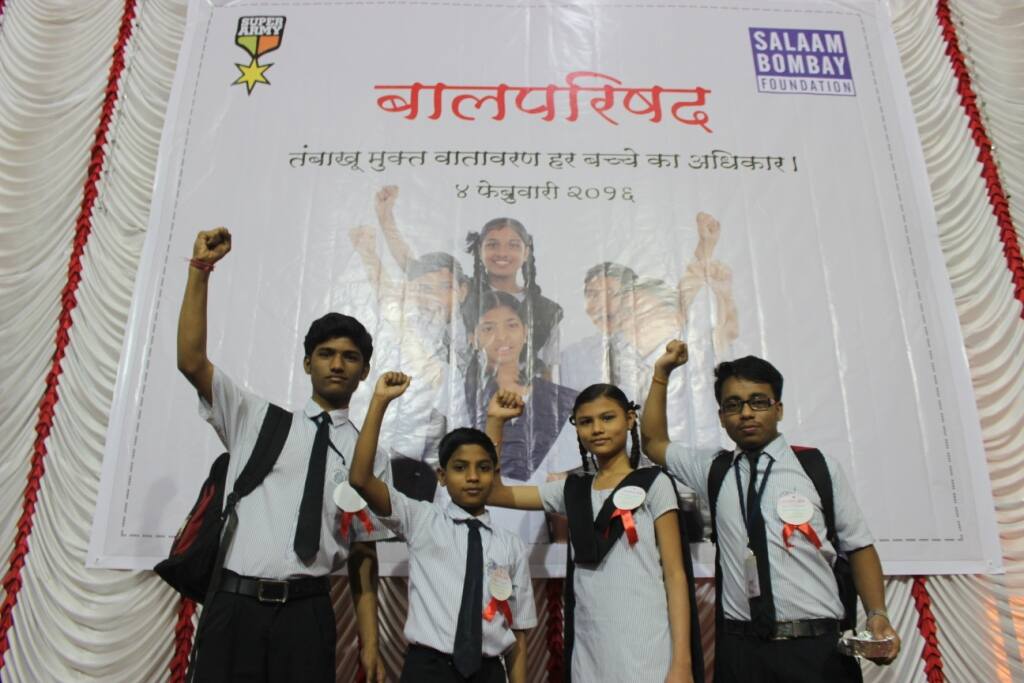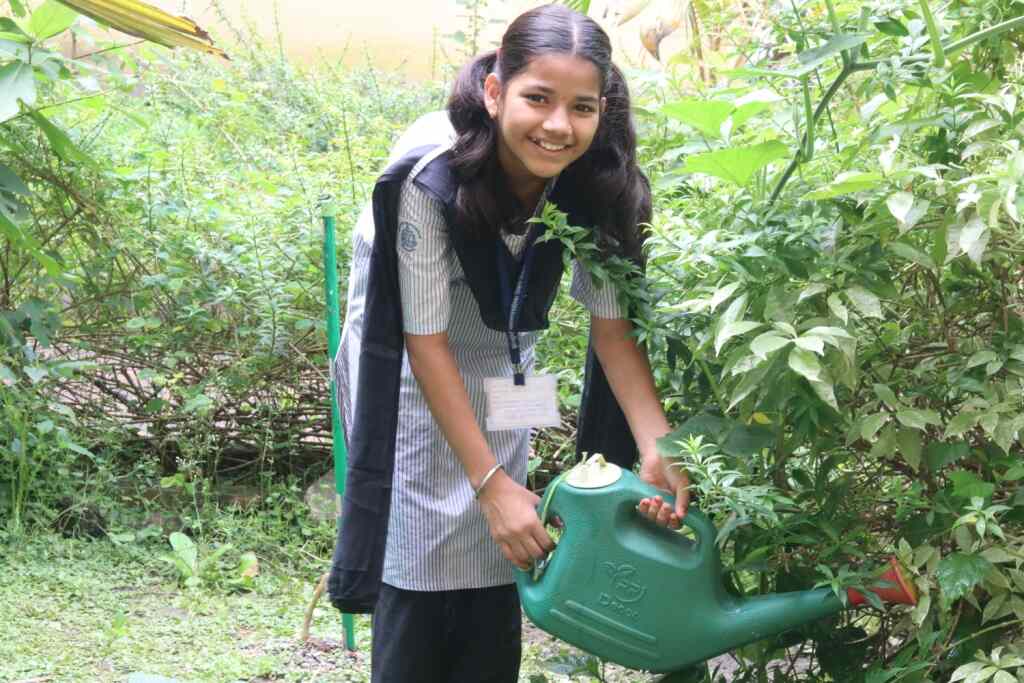Salaam Bombay Foundation takes a multidisciplinary approach for development of 21st century skills among resource-challenged adolescents. Through the different academies at Salaam Bombay Foundation, we work on the key areas such as Preventive Health, Mental Wellbeing, Vocational Skills, Sports, Arts, and Media for the resource-challenged adolescentsthus, equipping them with multi-dimensional skill sets and career options. The Foundation is spread across 6 cities.
Snehal’s songs of change
The sound of chipli bells echo down the bylanes of Bhabrekar Nagar, accompanied by a young voice singing in Marathi “Vasudev is here! O Vasudev is here! Oh auntie, can you hear me?” As the ‘aunties’ come out of their homes, they are greeted by an amusing sight – a young girl in a village minstrel’s garb, complete with a pointy red hat. Now, Snehal has their attention.
Snehal had grown up surrounded by fumes of masheri – a dark powder that is made by roasting tobacco leaves. The powder was favoured by the women in her locality who consumed it throughout the day – even brushed their teeth with it. Like them, Snehal grew up thinking masheri was healthy. A myth that was quickly dispelled by the Preventive Health Education Programme. She realised she couldn’t stand by silently as the women in her community poisoned themselves.
She began with posters and well-thought arguments, but addiction is no easy foe and her efforts seemed futile. That is when she remembered her grandmother’s stories of Vasudev, the enigmatic minstrel. Snehal made the minstrel her muse. She wove her message into her songs and sang them to a now entranced audience. The songs sunk deep and took hold in a way her words never had. The change was gradual but pronounced.
Now, the walls of her home are no longer tinged by the odour of masheri. Instead, boasting pride of place, is a newspaper article featuring Snehal – her community’s very own Vasudev.
Watch her story here
Preventive Health Education Programme- A Multi-Pronged Approach to Adolescent Health:
The primary aim of the Preventive Health Education Programme (PHEP) is towork towards the health and well-being of adolescents. This helps create a seismic shift at the community level by developing adolescent change agents and young leaders from amongst resource-challengedcommunities.
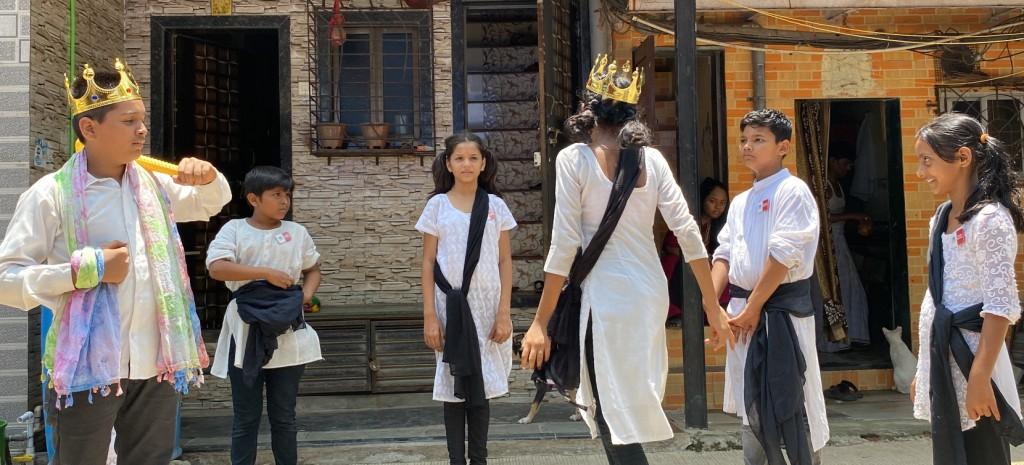
The Preventive Health Education Programme started off as an initiative to successfully steer these under-resourced students away from tobacco, which often serves as a gateway to substance abuse. Through targeted campaigns, workshops, and awareness programmes, the Foundation has been educating young individuals about the dangers of tobacco, empowering them to make healthier choices and avoid the perils of addiction.
Today, the charitable organisation branched out to include every aspect of these students’ health: resistance to tobacco use, awareness about nutrition, and looking out for their mental well-being.
The programme targets students at a pivotal time in their lives, those studying between grades 7 and 9, when they are the most vulnerable. There are two major purposes behind this— ensuring a healthy lifestyle and at the same time inspiring resource-challenged students to become change leaders thus motivating their entire community.
The Preventive Health Education Programme has empowered over five and a half lakh students to work with relevant policymakers and stakeholders to bring about positive change in their communities. The Foundation has been working for resource-challenged adolescents not only in Mumbai but also in cities like Pune, Thane, Kolkata, Jaipur, and Bengaluru. The Preventive Health Education Programme (PHEP) encompasses all major aspects of adolescent health, empowering young minds to make informed choices and break free from the shackles of poverty.
Details on the three pillars of the programme have been elaborated as below:
1. SUPER ARMY – Tobacco Control and Leadership Programme
Salaam Bombay Foundation began with the aim of raising awareness about the ill-effects of tobacco especially among the resource-challenged teenagers residing in urban slums. The Super Army programme reaches out to students at an age when they are most likely to begin experimenting with tobacco and other dangerous substances, an age when they are gullible, vulnerable and fall prey easily. Substance abuse is often the gateway to consequences such as dropping out of school.
The Foundation’s timely intervention has brought about positive change, impacting countless lives guiding them from the darkness of addiction to light.
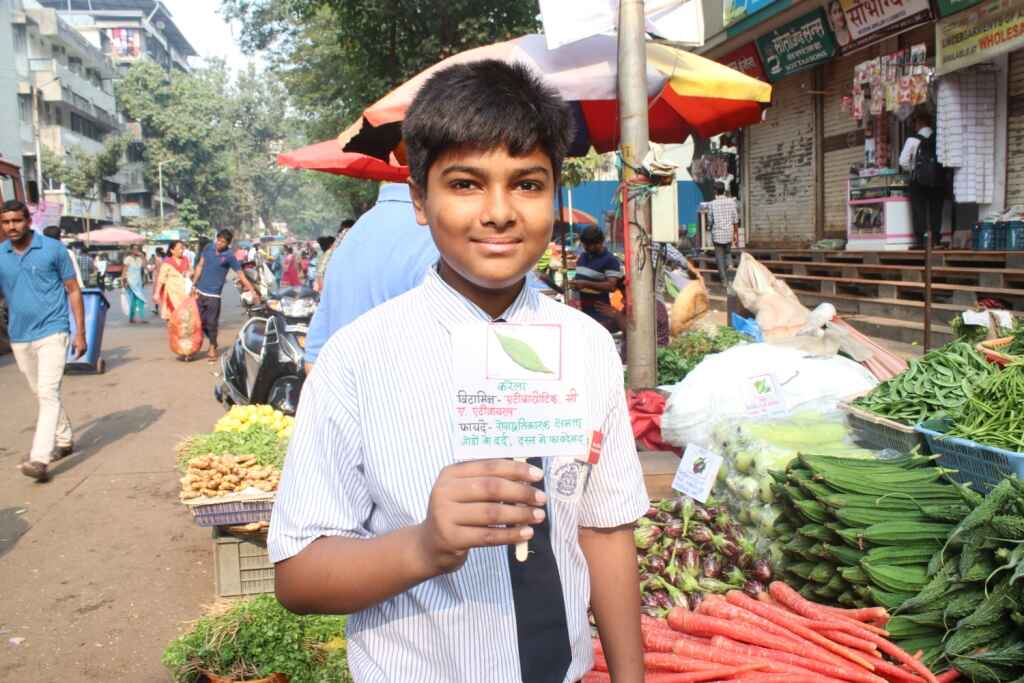
2. KHANA – Knowledge on Health and Nutrition for Adolescents
Nutrition awareness is another cornerstone of the Foundation’s initiatives. Resource-challenged adolescents often lack access to proper nutrition, which hampers their physical and cognitive development. The Foundation has been working diligently to educate these young minds about the importance of a balanced diet, ensuring they have the correct knowledge to nourish themselves adequately.
The KHANA programme under our Preventive Health Education Programme introduces resource-challenged students to aspects of healthy eating that are often inaccessibly gentrified, such as superfoods and microgreens.
However, educating students on the importance of proper nutrition is just the first step. Following this, the Foundation empowers students in a way that they act as Health Monitors and educate their communities. These Health Monitors work to help people from their communities learn healthier food choices by sharing healthy recipes with easily accessible ingredients and encouraging kitchen gardens to make expensive ingredients like microgreens more accessible.
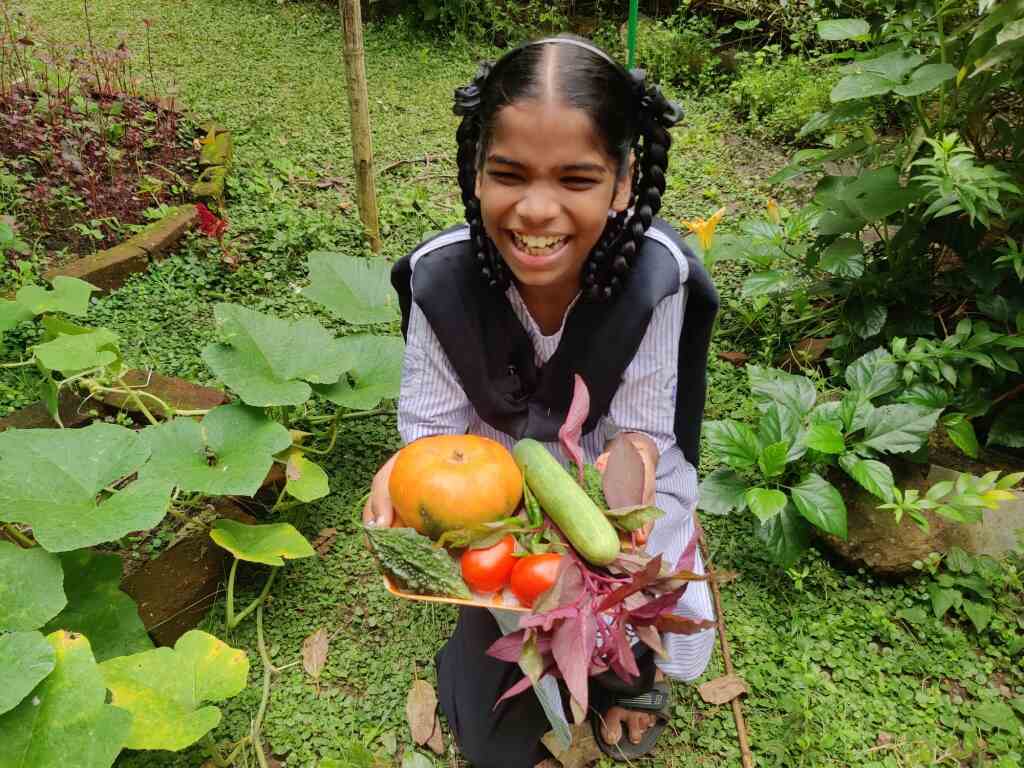
Throwing light on how their school kitchen gardens are serving a dual purpose of experiential learning as well as helping the students de-stress, Chief Innovation Officer and Sr. VP Preventive Health, Salaam Bombay Foundation, Ms. Tshering D. Bhutia further said, “Our School Kitchen Garden project in government schools goes beyond teaching nutrition, it serves as an initiative that not only educates students about the nutritional value of various plants but also cultivates their habit of growing organic food. These gardens offer a distinctive and enriching form of experiential learning, providing a tranquil and therapeutic setting for students to unwind and connect with nature. Here, they develop respect for their environment, collaborate effectively, explore nutrition, create innovative recipes, and share their knowledge within their communities. Furthermore, the introduction of microgreens has opened up a new realm for them, enabling the cultivation of nutritious food in compact spaces and encouraging experimentation with healthy recipes.”
Watch: Students spearheading change – Shubham’s story
3. HAPPY MINDS – Mental Well-Being Initiative
The close bond shared by Salaam Bombay Foundation members with resource-challenged students has helped them get a rare insight into the challenges faced by the latter. While the Covid-19 pandemic required swift and immediate measures to ensure these students had food, shelter and an uninterrupted education, their mental well-being also needed equal focus. This is how Salaam Bombay Foundation’s Happy Minds initiative was born. This initiative began with the Foundation members and workers making regular phone calls to check in on their students, entertaining them with games and puzzles, and providing a safe space for them to talk about their problems during the Covid-19 pandemic. Now, the programme has been upgraded to help students navigate stressors in their daily life. It encourages good mental well-being practices like meditation and exercise to help students manage stress and build resilience— tools that will help them stay motivated.
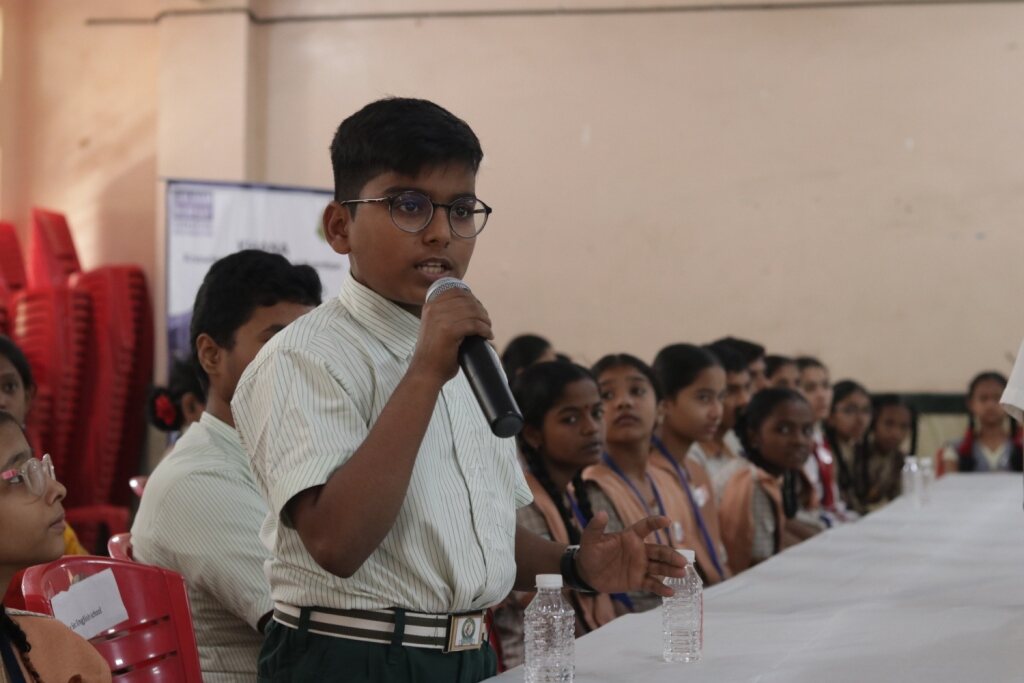
Health Monitors: Our catalysts of change at the community
By addressing the complex challenges faced by resource-challenged adolescents in Mumbai and beyond, Salaam Bombay Foundation has not only illuminated their pathways to success but has also played a vital role in breaking the cycle of poverty that has persisted for generations.
Through its impactful Preventive Health and Education Programme, the Foundation is nurturing a generation of enlightened, empowered, and resilient adolescents who are poised to shape a brighter future for themselves and their communities. These empowered adolescents have taken on the role of Health Monitors, becoming catalysts for change within their communities. They have embraced the responsibility of disseminating vital messages and promoting healthier lifestyles, becoming the driving force behind positive transformations in their neighbourhoods.
Talking about how the Preventive Health Education Programme creates catalysts of change at the community level, Ms. Tshering D. Bhutia, Chief Innovation Officer and Sr. VP Preventive Health, Salaam Bombay Foundation shared, “Our Health Monitors are the heart of our Preventive Health Education Programme. By providing them with the right information and platformwe empower them to become change agents within their communities. With their passion and commitment to promoting overall well-being, our Health Monitors shine as beacons of hope inurban slums.”
Creating Impact through Balparishad: Children Parliament/Child Cabinet
Balparishadis a dynamic and interactive platform meticulously designed to empower the Health Monitors. These Health Monitors are enthusiastic individuals who have taken it upon themselves to drive positive transformation in their surroundings, particularly towards health and well-being. At Balparishad, Health Monitors are given the unique opportunity to pose questions and seek guidance from esteemed panellists including policy makers and government stakeholders. Balparishad serves as a conduit for meaningful dialogue and learning, as these interactions not only address the specific queries of the Health Monitors but also inspire and motivate them to embark on further community-level development initiatives.
